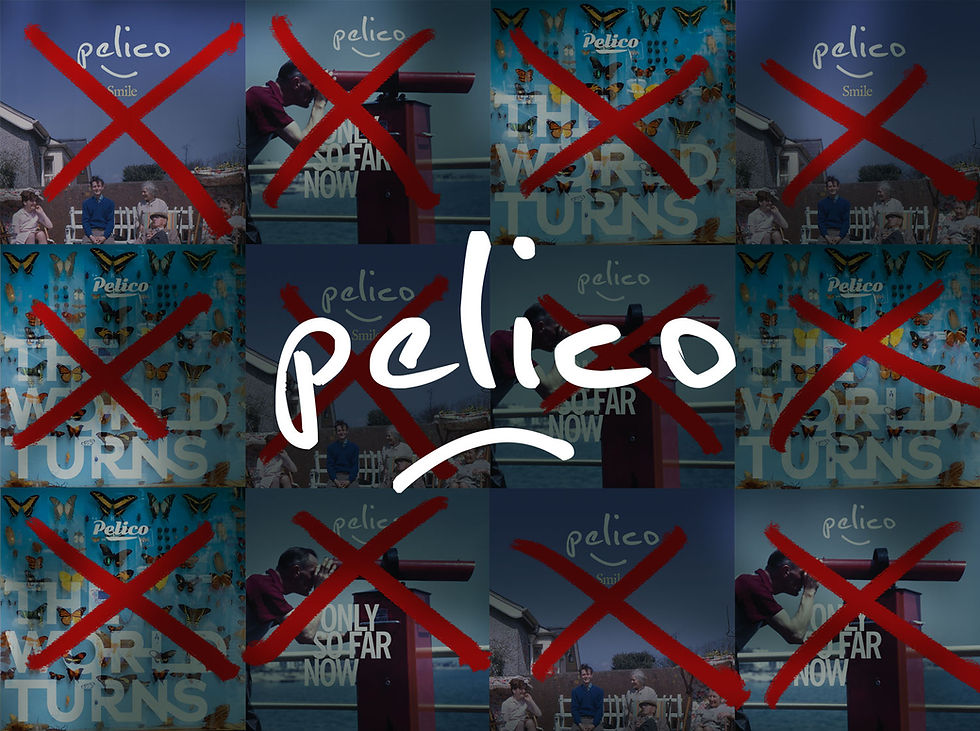Where's our music gone?
- Ashley McGovern
- Jul 25, 2025
- 3 min read

For us-and for so many other independent bands-streaming opened up the world.
We didn't need a label, a tour van, or endless radio plugs. We just needed a few good songs, some decent cover art, and the right listeners to stumble across our music. And they did.
Our debut album Smile came out in 2012 and, over time, reached more than 260,000 streams. Two years later, Only So Far Now followed, finding its own audience with over 146,000 plays. Slow and steady. All organic. No gimmicks.
Then, without any warning, both albums disappeared from every major streaming platform. No email. No explanation. Just gone.
And now, to our disbelief, The World Turns—our 2018 album—has met the same fate. Quietly removed. No notice. No chance to respond. Another part of our catalogue, wiped from the platforms we were told would help us reach the world.
The Rise of the 'Artificial Stream'
We dug around, trying to understand what had happened. The only thing we could find was a growing crackdown by platforms like Spotify and Apple Music on what they call artificial streaming.
These are plays generated by bots, click farms, or shady third-party services that simulate listening behaviour to inflate play counts. And we get it-fraud happens. Platforms need to protect themselves and the artists they host.
But we never bought streams. We never paid someone to play our music on a loop or hired a service to "boost" our numbers. We've always done things the long way round-playing live, promoting carefully, leaning on word-of-mouth and loyal fans.
Still, somehow, we were caught in the crossfire.
The Suspicion Trap
What's really frustrating is that no one tells you what crossed the line. There's no official number of streams that triggers action-just vague rules and pattern-detection algorithms.
Apparently, the platforms look at things like:
Where the streams are coming from
What time of day they're happening
Whether listeners are skipping to the 31-second mark (the threshold for royalties)
If the activity is coming from free accounts only
If something doesn't look right, the system flags it. And when that happens, it doesn't ask questions-it just acts.
That's what we suspect happened to us. Maybe a fan added one of our tracks to a playlist that got an unusual amount of attention. Maybe someone with good intentions used a promotional service that raised red flags. We honestly don't know.
What we do know is that our music was removed without any chance to explain ourselves.
When the System Fails Indie Bands.
It's hard to explain what that feels like.
You work for years, doing everything. Properly-writing, recording, promoting, gigging-and when people finally start listening, you get penalised. No dialogue. No defence.
As independent musicians, we don't have a manager calling Spotify on our behalf. We don't have a label leaning on their industry connections. We just have the music and now even that's been taken offline.
It feels like being shut out of your own house.
Big Brother is listening
This whole situation has made us ask some uncomfortable questions.
Are we being monitored every time someone presses play? Have streaming platforms gone from democratising music to controlling it? What used to be a space for discovery now feels like a space policed by algorithms that don't understand real-world context.
We know streaming platforms have to tackle fraud-but when honest, grassroots artists like us are being silenced, something's gone wrong.
Imagine being punished because too many people liked your song.
Where We Go From Here?
Our music will return to streaming. But we're trying to get answers, whilst also preparing for a future that doesn't rely on these platforms alone.
We’re not the only ones this has happened to. All over the world, independent artists have found their music suddenly removed from streaming platforms—often without warning or explanation. Producer and artist J. Robb shared a similar experience where entire projects were taken down, leaving him searching for answers. Others have spoken out offering advice and sharing their own stories of unexpected takedowns.
This is clearly a wider issue affecting many in the independent music community. We hope that by speaking up, we can help bring more clarity and conversation around how artists are treated—and how these situations can be handled more fairly in the future.







Comments